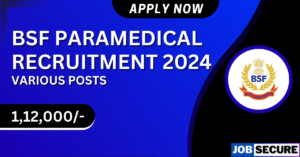Important Vocabs
1.Assault (noun) = a violent attack
Synonyms: Attack, onslaught
Antonyms: Defense, protection
2.Enclave (noun) = a portion of territory within or surrounded by a larger territory whose
inhabitants are culturally or ethnically distinct
Synonyms: Territory, precinct
Antonyms: Surrounding, exclave
3.Hostage (noun) = a person seized or held as security for the fulfillment of a condition
Synonyms: Captive, prisoner
Antonyms: Free person, liberator
4.Devastating (adjective) = causing severe shock, distress, or grief
Synonyms: Destructive, ruinous
Antonyms: Constructive, beneficial
5.Resolution (noun) = a firm decision to do or not to do something
Synonyms: Determination, resolve
Antonyms: Indecision, vacillation
6.Outburst (noun) = a sudden release of strong emotion
Synonyms: Eruption, explosion
Antonyms: Restraint, calm
7.Rubble (noun) = waste or rough fragments of stone, brick, concrete, etc., especially as the debris from the demolition of buildings
Synonyms: Debris, wreckage
Antonyms: Structure, construction
8.Fissures (noun) = long, narrow openings or cracks, especially in rock or earth
Synonyms: Cracks, crevices
Antonyms: Seals, closures
9.Battered (adjective) = injured by repeated blows or punishment
Synonyms: Beaten, damaged
Antonyms: Unharmed, intact
Read The Passage Carefully And Answer The Questions Given Below
Five and half months after Israel’s assault on Gaza began, in which 32,000 Palestinians have been killed, another 74,000 injured, more than 90% of the enclave’s population displaced and nearly all of them pushed into a devastating hunger crisis, the U.N. Security Council (UNSC), on March 25, called for “an immediate ceasefire” and release of all hostages held by Hamas. The United States, which has vetoed every U.N. resolution earlier that called for an immediate ceasefire in Gaza, abstained this time, signalling a change in the Biden administration’s policy towards the war. All other members of the UNSC, including Britain, which until recently had resisted calls to back a ceasefire, voted for the resolution. Israel responded angrily, cancelling a planned visit of two of Prime Minister Benjamin Netanyahu’s close cabinet aides to Washington, and, backed by China and Russia, blasting the resolution, for not conditioning a ceasefire on the release of hostages.
But beneath the anger and outburst lies Israel’s weakness. Israeli leaders have repeatedly said in recent weeks that an invasion of Rafah, the southernmost town where some 1.4 million Palestinians have been cramped into, was in the offing. It would be highly inappropriate, after 14 members of the UNSC called for an immediate ceasefire, for Israel to launch an attack on Rafah, which could end up in another bloodbath. The latest war was triggered by Hamas’s October 7 cross-border attack where at least 1,200 Israelis were killed. Israel had the sympathies and solidarity of the world on that day. But what Israel did in subsequent months was to punish the entire population of Gaza for what Hamas did, which turned international public opinion against it. If Israel makes an objective assessment of the situation, it should immediately abide by the UNSC resolution and declare a ceasefire. The October 7 attack itself was a massive intelligence and security failure for which Mr. Netanyahu should take responsibility. Instead of doing that, he went to war with full force, without proper achievable targets. After months-long fighting, Israel has turned much of Gaza into rubble, but has neither destroyed Hamas nor rescued hostages. The prolonged war has created fissures within the Netanyahu cabinet.
The Prime Minister is immensely unpopular and his coalition partners are at war with one another. The war has also increased Israel’s isolation, with tensions rising in its ties even with its close partners, including the U.S. If Israel continues the war with no clear end in sight, it will only worsen the domestic and international challenges it is facing, besides killing more Palestinians in the defenceless, battered, besieged, bombed-out Gaza. Mr. Netanyahu faces two choices. He can take the message from the UNSC seriously, stop the war, allow urgent humanitarian assistance into Gaza and continue talks with Hamas through international mediators for both the release of all hostages and the withdrawal of his troops from the enclave. Or, he can continue to lead his country in the dark in a state of permanent war.
Questions based on the passage
- What was the trigger for the latest war mentioned in the paragraph?
a) Hamas’s rocket attacks on Israeli cities
b) Hamas’s cross-border attack on October 7
c) Israeli airstrikes on Gaza
d) Israeli military intervention in Rafah - How many Palestinians are reported to have been killed in the Gaza assault?
a) 32,000
b) 74,000
c) 1,200
d) The exact number is not mentioned - Which country abstained from voting on the recent UNSC resolution regarding the Gaza conflict?
a) China
b) Russia
c) The United States
d) Israel - What action did Israel take following the UNSC resolution?
a) It accepted the resolution immediately.
b) It cancelled a planned visit to Washington.
c) It launched a military offensive in Rafah.
d) It declared a unilateral ceasefire. - What was the response of China and Russia to the UNSC resolution?
a) They abstained from voting.
b) They voted against the resolution.
c) They supported the resolution.
d) Their response is not mentioned. - What was the initial sympathy towards Israel attributed to in the paragraph?
a) A cross-border attack by Hamas
b) International solidarity
c) The October 7 incident
d) The UNSC resolution - What does the paragraph suggest about the current popularity of Prime Minister Benjamin Netanyahu?
a) He is immensely popular.
b) He is facing growing unpopularity.
c) His popularity remains unchanged.
d) The paragraph does not mention his popularity. - What action does the paragraph urge Netanyahu to take?
a) Continue the war with full force.
b) Declare a unilateral ceasefire.
c) Accept humanitarian assistance into Gaza.
d) Withdraw troops from the enclave. - According to the paragraph, what has the prolonged war in Gaza led to?
a) Increased international support for Israel
b) Solidarity within the Netanyahu cabinet
c) Fissures within the Netanyahu cabinet
d) A decrease in international isolation for Israel - What are the two choices presented to Prime Minister Netanyahu at the end of the paragraph?
a) Continue the war or declare a unilateral ceasefire
b) Seek international mediation or negotiate directly with Hamas
c) Maintain popularity or risk losing domestic support
d) Accept the UNSC resolution or defy international pressure
Answers
| Question | Answer |
|---|---|
| 1 | b) Hamas’s cross-border attack on October 7 |
| 2 | d) The exact number is not mentioned |
| 3 | c) The United States |
| 4 | b) It cancelled a planned visit to Washington |
| 5 | c) They supported the resolution |
| 6 | c) The October 7 incident |
| 7 | b) He is facing growing unpopularity |
| 8 | b) Declare a unilateral ceasefire |
| 9 | c) Fissures within the Netanyahu cabinet |
| 10 | a) Continue the war or declare a unilateral ceasefire |





